The content of the article
- 1 Causes of stomach pain
- 2 When to sound the alarm
- 3 How to eliminate stomach pain while carrying a child
- 4 Definition of the disease by the nature of the pain
- 5 Treatment of pain in the stomach: folk remedies
- 6 How to prevent gastralgia during pregnancy
- 7 Nutritionist Recommendations
- 8 Video: upset stomach
According to statistics, more than 70% of pregnant women complain of symptomatic acute or dull stomach pain. Most often, she worries the expectant mother in the first or last trimester. This is due to the growth of the uterus, which presses on adjacent organs, provoking malaise. What are the causes of pain in the stomach precisely during the bearing of the child, and what are the ways to eliminate the problem that are safe for the baby and mother?
Causes of stomach pain
In this difficult period for the body, a whole complex of changes in its work occurs, which may be accompanied by malaise. And as mentioned above, discomfort in the stomach is most often provoked by the fact that the growing fetus indirectly presses on it, provoking pathological processes. For example, stagnation of gastric juice, which can lead to heartburn and reflux.
In order for a woman to clearly understand the pain in which organ she is concerned, you need to know where the stomach is located. It is located in the left hypochondrium under the diaphragm. This is the so-called epigastric region, which is subject to strong pressure from the uterus, which has changed in size. But pain in the stomach can also provoke the banal overeating, which many pregnant women sin. In this case, the food simply does not have time to digest, stagnating in the stomach. The best way out is to reduce the amount of food eaten or use digestive enzymes that improve the process. Their choice must be agreed with a gastroenterologist.
Gastralgia (pain localized in the stomach) very often occurs when a woman forgets to eat on time. These are hungry pains, which are most often the result of advanced inflammation in the digestive tract. They can occur in the form of spastic contraction due to ulcer or erosion, as well as increased secretion of hydrochloric acid, which leads to an increase in the acidity of gastric juice. Therefore, pregnant women need to strictly observe the diet, eating food fractionally, but after an equal time period.
If gastralgia is accompanied by nausea and manifests itself in the first months of pregnancy, then most often this is a manifestation of toxicosis. In this case, you can get rid of the problem by the same methods that women fight with intoxication. This can be a systematic use of clean water with a small addition of lemon, herbal teas or sour fruits. If fluid intake provokes edema, you need to seek help from a gynecologist.
The root cause of pain in the stomach that is not directly related to it can be diseases of the "neighboring" organs: the gall bladder, pancreas and liver. Discomfort can provoke a bacterial lesion of the urinary system: kidney, bladder and ureter.
In very rare cases, if the pain in the stomach is accompanied by pain in the lower abdomen, it may be associated with inflammation of the appendicitis. In this case, require surgical advice from a surgeon.
Allergic reactions, which often occur during pregnancy, should also be noted. This is due to a decrease in general immunity. If you consume a lot of dairy products, then monitor if there is pain immediately after drinking milk or kefir. Sometimes pregnancy provokes lactose intolerance.
When to sound the alarm
Most often, pain occurs spontaneously and also disappears spontaneously.In this case, this is not a cause for alarm. But there are a number of additional symptoms that may accompany stomach pain, which require seeking advice:
- severe lingering cramps, similar to contractions;
- bowel disorder;
- nausea and vomiting;
- drops of blood in the stool;
- worsening of general well-being - headache, severe fatigue, drowsiness.
The combination of these symptoms can indicate both an exacerbation of a chronic disease (for example, gastritis or ulcers), and poisoning. Since the woman’s body is susceptible to any infections during child bearing, viral or bacteriological infection is considered the most common cause of gastralga. Symptoms of the process include general intoxication (nausea, vomiting, diarrhea), associated with pain in the stomach.
How to eliminate stomach pain while carrying a child
Young mothers need to understand that any treatment during pregnancy should be under the guidance of a doctor. Only he can make an accurate diagnosis and choose drugs that are safe for women and children. This is especially true for exacerbations of chronic diseases that may pose a potential threat to the health of women.
Since surgery and standard medication are prohibited during this period, some doctors recommend homeopathic remedies for pregnant women. For example, the well-known German company Heel, specializing in the production of homeopathy, has the drug "Gastrikumel." It combines plant and mineral components that allow the drug to have anti-inflammatory, antispasmodic, analgesic effects on the stomach. It is clinically proven safe for pregnant women.
Definition of the disease by the nature of the pain
If the stomach hurts enough, it intensifies during coughing, then we can assume that this:
- Exacerbation of gastritis. In this case, the greatest pain will be felt in the area "under the pit of the stomach" and very often accompanied by heartburn and sour taste in the mouth.
- Ulcer. In case of exacerbation of the ulcer, nausea can also be. But its main difference is a very sharp pain that cannot be removed by improvised means.
- Cholecystitis. The pain is felt under the right hypochondrium and is supplemented with specific symptoms: fever, yellowing of the skin and bitterness in the mouth.
Treatment of pain in the stomach: folk remedies
If it is not possible to consult a specialist, then gastralgia can be eliminated with the help of folk remedies.
When pain in the gastrointestinal tract is dictated by increased or decreased acidity, then the best solution will be to use herbal collection, which includes St. John's wort, chamomile and yarrow. 1 tablespoon is enough each component. The collection should be poured into a deep dish and pour 200 ml of boiling water, leaving to infuse for 2-3 hours. The resulting infusion should be drunk 1-2 tbsp. before meals (morning and evening).
One of the safest recipes for relieving pain in the stomach is to use a regular pharmacy chamomile. It has not only anesthetic, but also a regenerating property, protecting the mucosa from damage. For infusion, you need 1 tablespoon. chamomile and 200 ml of freshly boiled water. Pour the chamomile with boiling water and leave for 30 minutes. Cool and take a few tablespoons 3 times a day, preferably before meals.
In order to stop the pain and relieve irritation from the gastric mucosa, sea buckthorn oil can be used. Just 1 teaspoon taken 2-3 times a day before meals is enough to get rid of the pain. The optimal duration of treatment is at least a week. If necessary, you can continue treatment for another week. Sea buckthorn oil is also a source of vitamin E, A, K, has a tonic and antioxidant effect.
If the severity and pain in the stomach occur immediately after eating, then as a therapeutic and prophylactic agent, you can use white cabbage juice of 4 tbsp. 3 times a day for three weeks.
With gastritis, honey is especially effective. Try to replace sugar with it, but you only need to put it in warm water, because when exposed to high temperatures, it loses its healing properties.
If a pregnant woman suffers from gastritis with low acidity, then it is suitable to collect herbs based on wormwood, oregano and thyme. Each grass must be brewed according to the instructions on the box, mixing them in equal amounts.
An easy and affordable way to eliminate painful sensations not only in the stomach, but throughout the gastrointestinal tract is to use an extract of aloe leaves. To do this, grind on a regular grater 1 tbsp. the pulp of the plant and fill it with 0.5 liters of boiling water, placing all this in a thermos. Leave the product to infuse for 40 minutes. The resulting infusion is taken warm in ¼ cup 20 minutes before a meal. Aloe not only calms the mucous membrane, but also has bactericidal properties, suppressing pathogenic microflora.
Try to accompany the treatment of the stomach with a diet, avoiding the use of sharp and acidic foods.
How to prevent gastralgia during pregnancy
It is unlikely to be able to avoid pain for all nine months, but it is quite possible to reduce the discomfort. To do this, you can use the following recommendations:
- Minimize stress. Very often, chronic ailments worsen after experienced stressful situations. Plus, nervous tension negatively affects the general condition of a woman and a child.
- Do not go to bed for half an hour after eating. Otherwise, digestion can be disturbed.
- Avoid eating acidic and spicy foods. They irritate the gastric mucosa and can lead to erosion and gastritis.
- Eat in small portions, but 5-6 times a day. This diet reduces the load on the digestive tract, because he needs to digest quite a bit of food. The advantage of such a system is that it will help not to gain extra pounds for a woman.
- If you do not have edema, try to drink at least 1.5 liters of water per day. And if you add a spoonful of honey to a morning glass of water, then you will get a very effective remedy for constipation.
Nutritionist Recommendations
In order to minimize the possible manifestation of gastralgia, it is very important to choose the right diet, which will provide maximum vitamins and minerals without provoking pain:
- You need to use kefir or pure yogurt daily. Ideally, if it will be made at home with the help of a yogurt maker. You can buy sourdough at any pharmacy.
- The fastest digested are hard-boiled eggs, boiled fish, and heat-treated vegetables. They must be included in the diet, since almost the entire periodic table is collected in the eggs, and the red slave is a source of omega3 essential fatty acids.
- It is better not to fill salads with oil, as it slows down digestion.
- Do not drink food with water, as it dilutes the gastric juice, which as a result can also provoke stagnant processes.
Stomach pain during pregnancy is a common occurrence. It can be purely physiological, due to the expansion of the uterus. And it may be a consequence of exacerbation of chronic diseases. The most reasonable way out of this situation is to see a doctor. Only a competent examination will accurately determine the cause of the disease.
Video: upset stomach

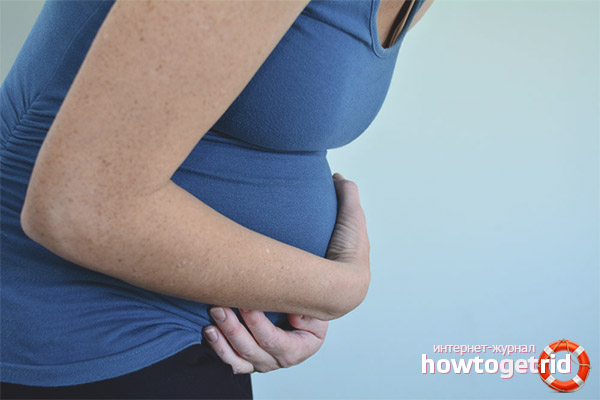
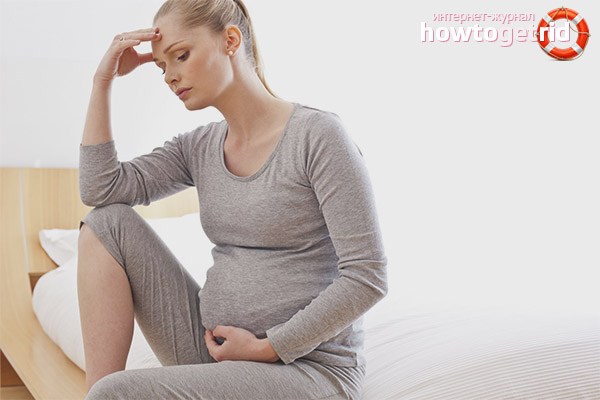



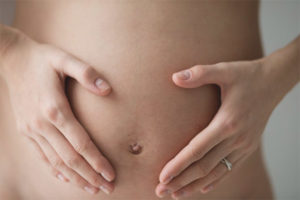

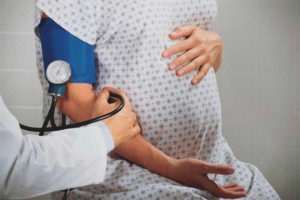
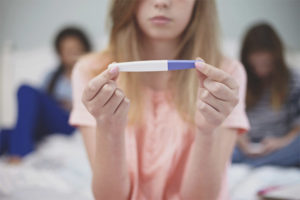
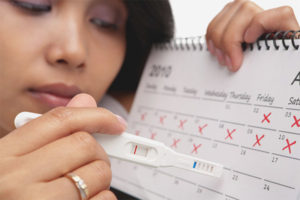
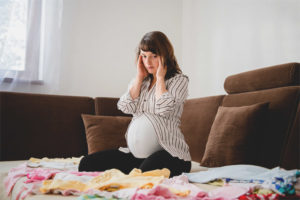
Submit